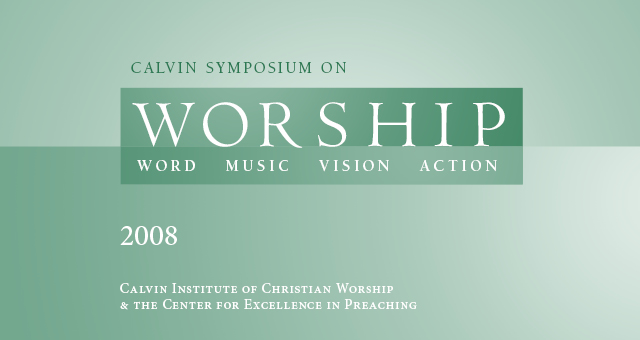Loading...
Session Description
George Barna: "Most of the church people who fight about their musical preference do so because they don't understand the relationship between music, communication, God and worship. Church leaders foster the problem by focusing on how to please people with music or how to offer enough styles of music to meet everyone's tastes rather dealing with the underlying issues of limited interest in, comprehension of, and investment in fervent worship of a holy, deserving God." ... The Barna study discovered that among the key worship issues is that church-going adults and Protestant Senior Pastors do not share a common perception of the most important outcome of worship. Congregants were most likely to understand worship as activity undertaken for their personal benefit (47%) while Senior Pastors described the purpose of worship as connecting with God (41%) or experiencing His presence (30%). Only three out of ten church-going adults (29%) indicated that they view worship as something that is focused primarily on God. One out of every five attenders admitted that they had no idea what the most important outcome of worship is.
Conference Title
2008 Calvin Symposium on Worship
Event Date
1-25-2008
Event Type
Workshop/Seminar
Type (recording/text)
Recording
Subject Area
Worship
Topic
Contemporary Worship
Keywords:
resources, contemporary worship, modern worship
Upload Date
January 2008
Recommended Citation
Witvliet, John D., "Worship 101: The Building Blocks of a Biblical Approach to Worship" (2008). Symposium on Worship Archive. 11.
https://digitalcommons.calvin.edu/uni-cicw-symposium/2008/allitems/11
Worship 101: The Building Blocks of a Biblical Approach to Worship
George Barna: "Most of the church people who fight about their musical preference do so because they don't understand the relationship between music, communication, God and worship. Church leaders foster the problem by focusing on how to please people with music or how to offer enough styles of music to meet everyone's tastes rather dealing with the underlying issues of limited interest in, comprehension of, and investment in fervent worship of a holy, deserving God." ... The Barna study discovered that among the key worship issues is that church-going adults and Protestant Senior Pastors do not share a common perception of the most important outcome of worship. Congregants were most likely to understand worship as activity undertaken for their personal benefit (47%) while Senior Pastors described the purpose of worship as connecting with God (41%) or experiencing His presence (30%). Only three out of ten church-going adults (29%) indicated that they view worship as something that is focused primarily on God. One out of every five attenders admitted that they had no idea what the most important outcome of worship is.



